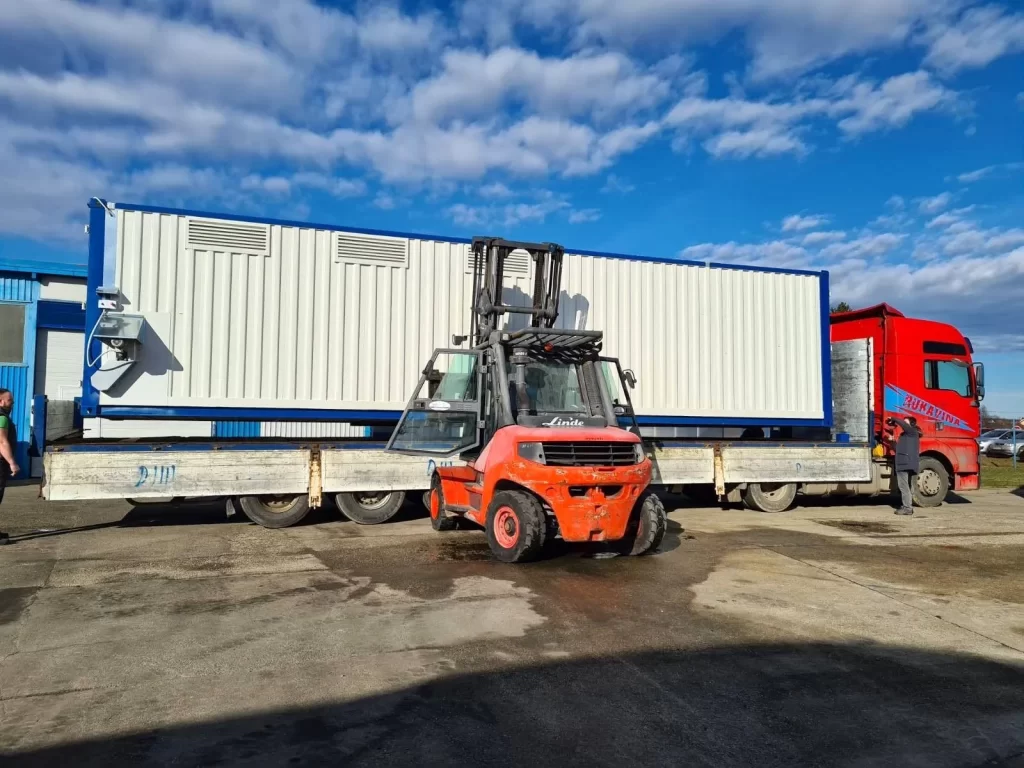It is generally agreed that the river Drava forms the border between Croatia and Hungary. In addition to the physical boundary, the two countries are also separated by a language barrier, which may have contributed to the limited cross-border business activities. This has led to the development of the B Light Scheme, funded under the Interreg V-A Hungary-Croatia Co-operation Programme 2014–2020, a grant programme aimed at supporting the cooperation between SMEs in the border areas. The goals of the B-light Scheme include increasing the gross value added, promoting the internationalisation and improving the competitiveness of SMEs, and developing enterprises through business cooperation in the form of joint production, transfer of technology and development of services, supply chains and the common market, as well as planning future joint investments.
The programme was used to co-fund the cooperation between Herbas d.o.o., a Croatian company from Pitomača specialised in designing and manufacturing process equipment for industrial hemp, camomile and other medicinal and aromatic herbs, and tobacco, equipment for the food and processing industry and agriculture (various types of dryers and camomile and pumpkin combine harvesters), and Barcs Metál Kft., a Hungarian company whose core business is designing and manufacturing metal containers.
The cooperation resulted in a jointly developed plug-and-play product – a mobile dryer that offers an affordable and quick way to dry medicinal and aromatic herbs, as well as other plants, such as industrial hemp, nuts and other seeds. The total value of the project is EUR 360,000 (EUR 180,000 per partner), with a co-financing rate of 75%, i.e. EUR 130,000 per partner. During the 20-month implementation period, the two partners purchased new manufacturing equipment: Herbas bought a CNC turning machine, whereas Barcs Metál Kft. bought a forklift, hydraulic scissors, a sheet metal folder and a new painting line. Personnel expenses and marketing activities are also co-financed under the project.
The manufacturing process required close cooperation and synergy between the partner companies. The new dryer fits in well with the Herbas product portfolio, and it is housed in a special metal container, which is Barcs Metál’s area of expertise. At the end of 2020, the cooperation resulted in the first prototype of this one-of-a-kind product, which then entered the market in early 2021.

This will surely be welcome news for many growers of aromatic and medicinal herbs and spices that are often scattered across small land plots. To dry the fruits, they have to transport large volumes of plants to the nearest dryers in a short amount of time in order to prevent fermentation, which is a very costly process. The mobile dryer offers a solution to this problem, as it is transported directly to the farm, which reduces transport and storage costs.
Since this innovative dryer is housed in a container and certified as a machine, it does not require a building permit and can be transported by any truck. It is easier to use than stationary dryers, as only a flat surface and power supply are needed for its installation. The dryer is therefore truly a “plug-and-play” product. Because of this, the operators only need to fill and empty the moving bed inside the dryer, and unlike with older dryers, which required 3–4 workers, now only 1–2 people are needed for the job. Filling takes place in front of the dryer, using a leveller and a moving bed. This is a time-saving solution, as the operator does not need to transfer the process materials from the entrance to the partition wall; they only need to control the automatic transfer and make sure the dryer is filled evenly. The emptying procedure is also performed near the entrance to the dryer, by shifting the moving bed in the opposite direction. This way of handling the material also reduces the risk of contamination, as the user does not need to enter the dryer during the filling or emptying procedures.
The product can be supplied with electricity either from standard power sources or electric generators. Drying is achieved by vertical forced convection through the drying material. Heating and air flow is provided by a thermal generator using heat exchange and a suitable integrated fan. Thermal energy is produced by burning biomass – wood chips, wood pellets, walnut shells, hazelnut shells, cherry stones, plum stones, etc. The biomass is automatically dispensed according to the required heat output in the dryer, and depending on the set parameters or drying programmes for each material.
Because of its cost-effectiveness and simplicity, this dryer represents an attractive opportunity even for small-scale growers who do not have the technical capabilities to operate complex machinery, as it offers complete versatility and easy use anywhere, in an eco-friendly way. Since this kind of product is new not only on the Croatian market, but in general, and because it is an innovative solution for drying various materials, it has also drawn the attention of buyers across Europe thanks to the wide network of Herbas customers.
The roles of the two companies have remained the same for the serial production – Herbas manufactures the dryer, while Barcs Metál manufactures the accompanying container. The cooperation between the partner companies on either side of the Drava continues, proving that the river actually connects the two countries, rather than divides them.
